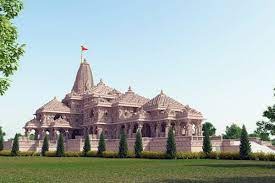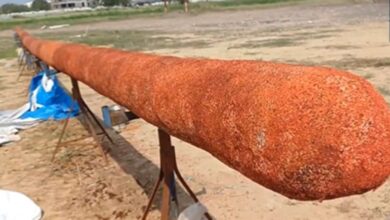HC adjourns hearing on appeal challenging ruling permitting puja in basement at Gyanvapi mosque
The hearing on the case contesting the Varanasi district court judgment permitting Hindu prayers in the Gyanvapi mosque’s crypt was postponed by the Allahabad High Court on Monday. The plea hearing has been postponed until February 15.

The Anjuman Intezamia Masjid committee filed an appeal, and Justice Rohit Ranjan Agrawal issued a ruling in response. According to news wire PTI, the court spent a considerable amount of time listening to Punit Gupta and SFA Naqvi, the Muslim side’s attorneys, and on Naqvi’s request, scheduled the next hearing date on February 15.
After the Supreme Court declined to hear the Anjuman Intezamia Masjid committee’s appeal against the Varanasi district court judgment, the committee overseeing the mosque next to the Kashi Vishwanath temple went to the high court on February 2. The Anjuman Intezamia Masjid committee was invited to petition the high court by the Supreme Court.
The Allahabad High Court postponed the petition hearing to Monday, February 12, last week as well. The Gyanvapi Masjid committee has not received any prompt remedy from the Allahabad High Court.
On January 31, the district court of Varanasi made a ruling allowing a priest to do prayers in front of the statues in the southern crypt of the Gyanvapi mosque in Varanasi. The same night, prayers were held in the Gyanvapi mosque’s basement thanks to court decisions permitting the revival of a custom that had been abandoned three decades before.
According to temple trust president Nagendra Pandey, “Vyas ji’s cellar was opened after 31 years for prayers,” PTI was informed. According to him, the court ruling caused the southern cellar to open on January 31 at around 10.30 p.m.
Concurrently, the All India Muslim Personal Law Board (AIMPLB) said that the Varanasi district court ruling permitting Hindu prayers in the masjid’s basement was made in “haste” and that it will take the issue all the way to the Supreme Court to get justice.
According to a PTI report, a number of Muslim organizations that fall under the All India Muslim Personal Law Board have said that in order to avoid conflicts within the nation, the Places of Worship Act, 1991 should be followed exactly.







